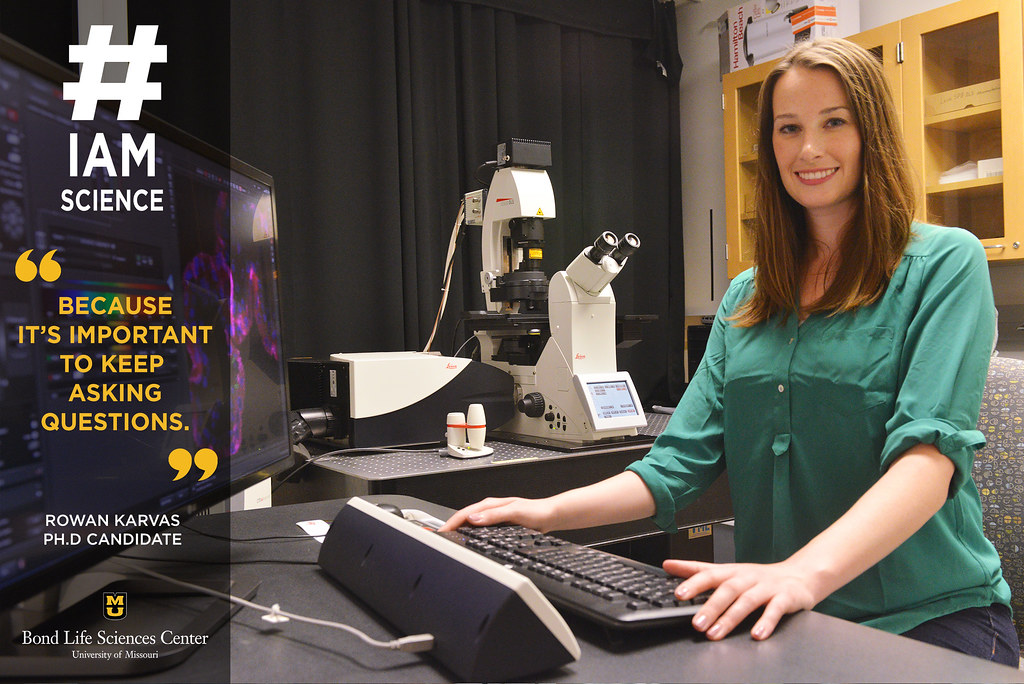
By Erica Overfelt | Bond LSC
Answering the unsolved questions is a lifetime commitment for fifth year Ph.D. candidate Rowan Karvas in the Roberts Lab at Bond LSC and Laura Schulz’s lab at the medical school in the Obstetrics and Gynecology department.
Originally from St. Louis, Karvas came to Mizzou and found her keen for science through her undergrad research working on adult muscle cells, but it wasn’t until she became a technician in a radiation oncology research lab at Washington University when she realized she wanted to continue research throughout her life.
“I remember a moment when a grad student, Danny Stark, and I were isolating quail embryos,” Karvas said. “We opened them up and I saw their beating tube hearts and all the details. Just looking under the microscope at them was so fascinating to me, I realized that I wanted to keep doing biological research.”
Karvas believes asking questions is what we often forget to do as a society, and in a scientific world with unlimited questions, she knows the one she’d most like to answer.
“I would like to solve pre-eclampsia,” Karvas said. “It’s a disease that’s most likely been with us since we have been human, and it is a disease that deserves to be solved.”
Karvas works on two projects researching human placental development. The pregnancy disease pre-eclampsia often goes unnoticed until later in pregnancy, but causes dangerously high blood pressure, kidney damage, and a placenta that is underdeveloped and has not invaded the maternal endometrium efficiently.
Karvas was eager to work on this problem and so she started grad school two months early.
“This disease if often very deadly for women and in the most severe forms causes death,” Karvas said. “It is the leading cause of maternal fatality in the developing world and is becoming a problematic issue in the states. There are no rock solid genetic, physiologic factors, or environmental stimulus that accurately predicts who will get this disease.”
And that’s why Karvas spends her time researching how and when pre-eclampsia develops during pregnancy.
In Karvas’s first research project, she is looking at modifications to the genetic code that could be responsible for pre-eclampsia and her second project is finding the answer to the question, “at what stage of pregnancy does our cell model represent?”
When Karvas isn’t in the lab you can find her aiding to bridge the gap between clinical scientists and basic science researchers as president of Interdisciplinary Reproduction and Health Group Trainees. The new group involves graduate students and post-doctoral researchers from animal sciences to biochemistry, all coming together to further explore reproductive science.
“It makes me happy and it is very satisfying to start the group and be a part of the groundwork for its continuation,” Karvas said. “Fostering these relationships with people you may have not met otherwise is important.”
When Karvas isn’t running her group or in the lab, you can find her playing the clarinet. Before discovering her love for science she wanted to be a professional performer.
“It is an opportunity to use the other part of my brain,” Karvas said. “I get to shut off the science part and bring on the musical part.”

